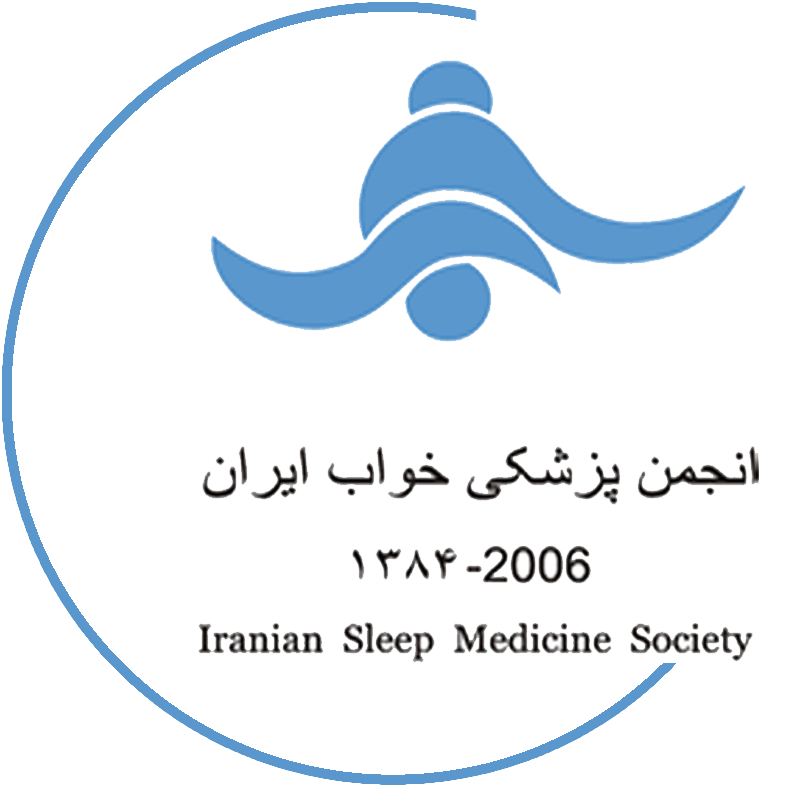Other Side of Breast Cancer: Sleep Quality
Abstract
Background and Objective: Breast cancer is the most common cancer among women. Many of the women with breast cancer suffer from sleep disorders. This study aimed to investigate the quality of sleep and its related issues in women with breast cancer referred to the Hematology and Oncology Research Center affiliated with Tabriz University of Medical Sciences, Tabriz, Iran.
Materials and Methods: In this cross-sectional study, 103 women with breast cancer were chosen using the census method. Data were collected using the Pittsburgh Sleep Quality Index. Descriptive and analytic statistics and linear re-gression test were used for data analysis.
Results: The mean age of the sample was 42.59 years [standard deviation (SD): 11.72 years] and the average length of diagnosis was 19.90 months (SD: 12.67 months). The mean score of sleep quality was 11.50 (SD: 3.71) in a range from 0 to 21. Except the history of mastectomy, age, smoking status, the remaining demographic data could predict 39.5% of the variance of sleep quality.
Conclusion: The results of this study are a wakeup call for officials. To prevent the negative impact of poor quality of sleep, there is a need to design holistic and appropriate interventions. The findings provide valuable information with scheduling for these interventions.
Otte JL, Carpenter JS, Manchanda S, et al. Sys- tematic review of sleep disorders in cancer patients: can the prevalence of sleep disorders be ascertained? Cancer Med 2015; 4: 183-200.
Potter PA, Perry AG, Stockert P, et al. Funda- mentals of Nursing. Philadelphia, PA: Elsevier Health Sciences, 2016.
Walker AJ, Pongsing Y, Nail L, et al. Sleep- wake patterns of school-age children and adolescents before diagnosis and during induction chemotherapy for acute lymphocytic leukemia. J Pediatr Nurs 2011;26: e37-e44.
Lee K, Cho M, Miaskowski C, et al. Impaired sleep and rhythms in persons with cancer. Sleep Med Rev 2004; 8: 199-212.
Chen ML, Yu CT, Yang CH. Sleep disturbances and quality of life in lung cancer patients undergoing chemotherapy. Lung Cancer 2008; 62: 391-400.
Vahidi M, Mahdavi N, Asghari E, et al. Other Side of Breast Cancer: Factors Associated with Care- giver Burden. Asian Nurs Res (Korean Soc Nurs Sci)2016; 10: 201-6.
Hawighorst-Knapstein S, Fusshoeller C, Franz C, et al. The impact of treatment for genital cancer on quality of life and body image--results of a prospective longitudinal 10-year study. Gynecol Oncol 2004; 94:398-403.
Noroozi M. Quality of sleep and related factors in Breast Cancer Patients Receiving Chemotherapy in Qom 2011. Iran J Breast Dis 2012; 4: 51-60.
Kashani F, Kashani P. The effect of massage therapy on the quality of sleep in breast cancer patients. Iran J Nurs Midwifery Res 2014; 19: 113-8.
Fortner BV, Stepanski EJ, Wang SC, et al. Sleep and quality of life in breast cancer patients. J Pain Symptom Manage 2002; 24: 471-80.
Levkovich I, Cohen M, Pollack S, et al. Cancer- related fatigue and depression in breast cancer patientspostchemotherapy: Different associations with opti-mism and stress appraisals. Palliat Support Care 2015;13: 1141-51.
Carpenter JS, Andrykowski MA. Psychometric evaluation of the Pittsburgh Sleep Quality Index. J Psychosom Res 1998; 45: 5-13.
Beck SL, Schwartz AL, Towsley G, et al. Psy-chometric evaluation of the Pittsburgh Sleep Quality Index in cancer patients. J Pain Symptom Manage 2004; 27: 140-8.
Kuo HH, Chiu MJ, Liao WC, et al. Quality of sleep and related factors during chemotherapy in pa- tients with stage I/II breast cancer. J Formos Med As- soc 2006; 105: 64-9.
Bhasin H. Chronic Insomnia & Its Impact amongst Adolescents. Int J Ind Psychol 2016; 3: 70-88.
Mustian KM, Sprod LK, Janelsins M, et al. Multicenter, randomized controlled trial of yoga for sleep quality among cancer survivors. J Clin Oncol 2013; 31: 3233-41.
Ancoli-Israel S, Moore PJ, Jones V. The rela- tionship between fatigue and sleep in cancer patients: a review. Eur J Cancer Care (Engl) 2001; 10: 245-55.
Pettee Gabriel K, Sternfeld B, Shiroma EJ, et al. Bidirectional associations of accelerometer-determined sedentary behavior and physical activity with reported time in bed: Women's Health Study. Sleep Health 2017; 3: 49-55.
Feyzabadi Z, Jafari F, Feizabadi PS, et al. In- somnia in Iranian traditional medicine. Iran Red Cres- cent Med J 2014; 16: e15981.
Davidson JR, MacLean AW, Brundage MD, et al. Sleep disturbance in cancer patients. Soc Sci Med 2002; 54: 1309-21
Chang WP, Liu ME, Chang WC, et al. Sleep apnea and the subsequent risk of breast cancer in wom- en: a nationwide population-based cohort study. Sleep Med 2014; 15: 1016-20.
Palesh O, Aldridge-Gerry A, Ulusakarya A, et al. Sleep disruption in breast cancer patients and survi- vors. J Natl Compr Canc Netw 2013; 11: 1523-30.
Nieto FJ, Peppard PE, Young T, et al. Sleep- disordered breathing and cancer mortality: results from the Wisconsin Sleep Cohort Study. Am J Respir Crit Care Med 2012; 186: 190-4.
Mercadante S, Girelli D, Casuccio A. Sleep dis- orders in advanced cancer patients: prevalence and fac- tors associated. Support Care Cancer 2004; 12:355-9.
Fiorentino L, Rissling M, Liu L, et al. The Symptom Cluster of Sleep, Fatigue and Depressive Symptoms in Breast Cancer Patients: Severity of the Problem and Treatment Options. Drug Discov Today Dis Models 2011; 8: 167-73.
Park JH, Lee SJ, Gwak JI, et al. Sleep quality of breast cancer patients receiving chemotherapy in the out- patients setting. Korean J Fam Med 2010; 31: 778-85.
Hosseinzadeh M, Eivazi ZJ, Mahdavi N, et al. Risk factors for breast cancer in Iranian women: a hos- pital-based case-control study in Tabriz, Iran. J Breast Cancer 2014; 17: 236-43.
| Files | ||
| Issue | Vol 1 No 4 (2016): Autumn | |
| Section | Original Article(s) | |
| Keywords | ||
| Sleep quality Breast cancer Pittsburgh Sleep Quality Index | ||
| Rights and permissions | |

|
This work is licensed under a Creative Commons Attribution-NonCommercial 4.0 International License. |



